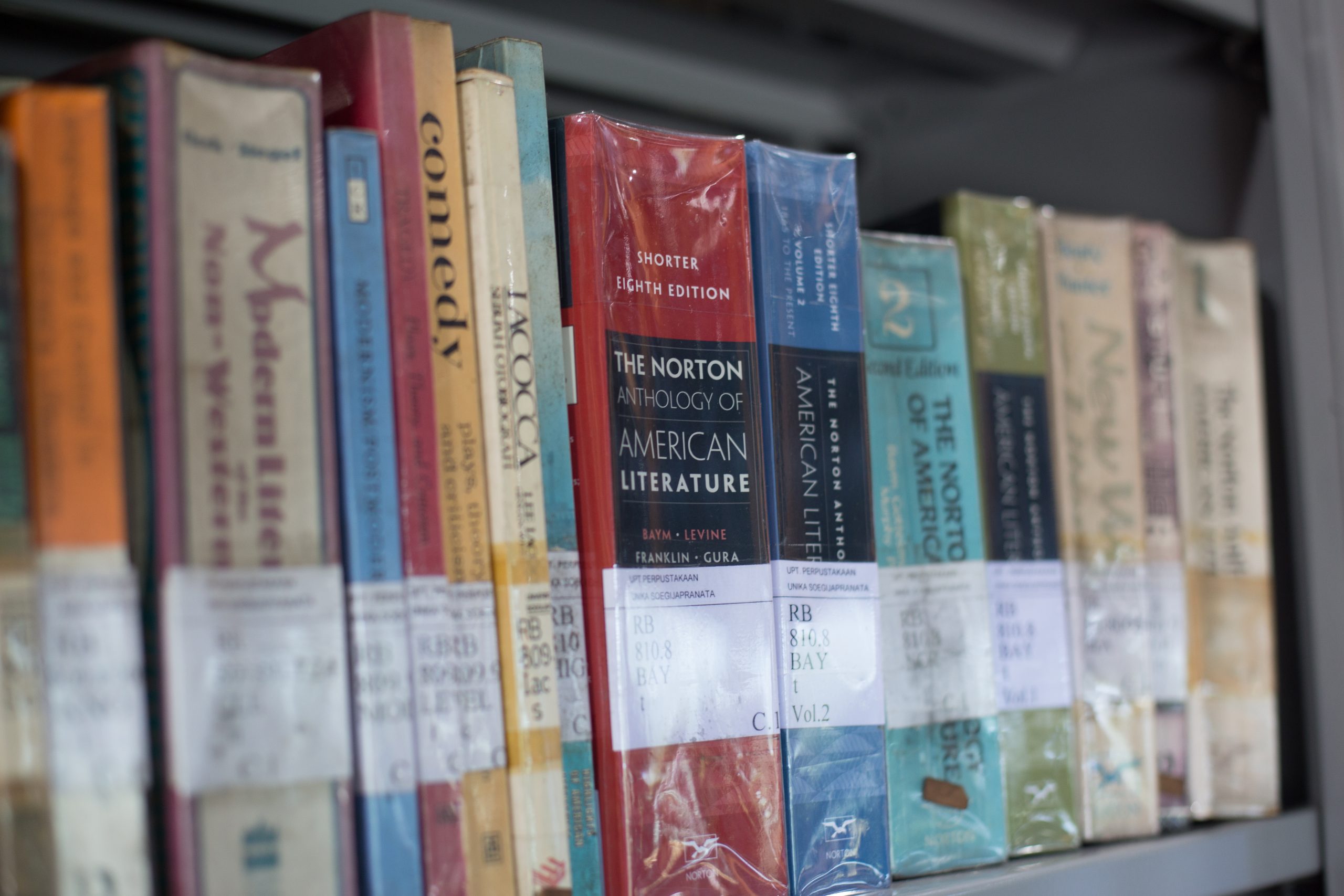Literature
What is Literature?
Literature is the study or knowledge of everything related to literary works. Literature refers to works of art that are highly meaningful in both content and form, representing the expressions of human experiences drawn from life, creatively crafted and composed in a language that is rich in meaning as a medium, thereby achieving high aesthetic qualities. Examples of literary works studied and analyzed by students in the Literature Concentration Program include novels, short stories, dramas, poetry, films, song lyrics, and more.

What to study?
In the Literature concentration program, students learn:
- English language skills
- Techniques for writing short stories, drama scripts, and poetry, both conventionally and digitally
- Analyzing and studying short stories, dramas, poems, films, and other pop-culture phenomena
What are the learning outcomes?
Graduates of the Literature concentration program are expected to:
- be proficient in the English language, acquired through language skill courses such as Reading, Writing, Speaking, Listening, Grammar, Translation, and Interpretation.
- be capable of producing quality literary works, including poetry, prose, and drama
- be able to analyze literary works and cultural phenomena.

Why do we need to study Literature?
1.
Studying literature or creating literary works such as prose, poetry, or drama improves our ability to understand human expression: hopes, struggles, and even dilemmas. In essence, learning literature is an act of self-discovery and understanding others.
2.
Literature is a creative and imaginative form of communication. Studying literature enables us to interact and convey messages effectively, both through verbal forms of communication: oral and written, and non-verbal forms of communication: facial expressions and gestures.
Graduate Profile of the Literature Concentration Program
Graduates who are highly capable of creating short stories, drama scripts, and poetry both conventionally and digitally.
Formative courses
- Literature Matters
- The Study of Fiction
- Literature Reading
- The World of Drama
- Short Story Writing
- Short Drama Writing
- Poetry Writing
Graduates who are highly capable of analyzing, evaluating, and appreciating literary works through their knowledge of critical theory, literary research methods, etc.
Formative courses
- Literature Matters
- The Study of Fiction
- Literature Reading
- The World of Drama
- Poems Interpretation
- Pop Culture
- Literary and Cultural Criticism
- Gender Studies
- Folklore
- Graphics Art
- American Studies
- Film Critique
- Short Story Writing
- Poetry Writing
- Graphic Novels
- Travel Writing
- Short Drama Writing
- Research Methods
- Literary Project Presentation
Graduates who are skillfully capable of using the English Language in general working environments.
Formative courses
- Structure 1
- Structure 2
- Structure 3
- Discovery Listening
- Inquest Listening
- Business Venture Listening
- Word Discovery
- Functional Communicative Speaking
- Speaking for Group Interaction
- Public Speaking
- Speaking for Business
- Speaking for Professionals
- Pronunciation for Accuracy
- Pronunciation for Proficiency
- Reading Techniques
- Reading Matters
- Academic Reading
- Paragraph and Expository Writing
- Academic Writing
- Comprehensive Writing
- English-Indonesian Translation
- Sight Translation
- Consecutive Interpreting
- Indonesian-English Interpretation
- English Proficiency Test

